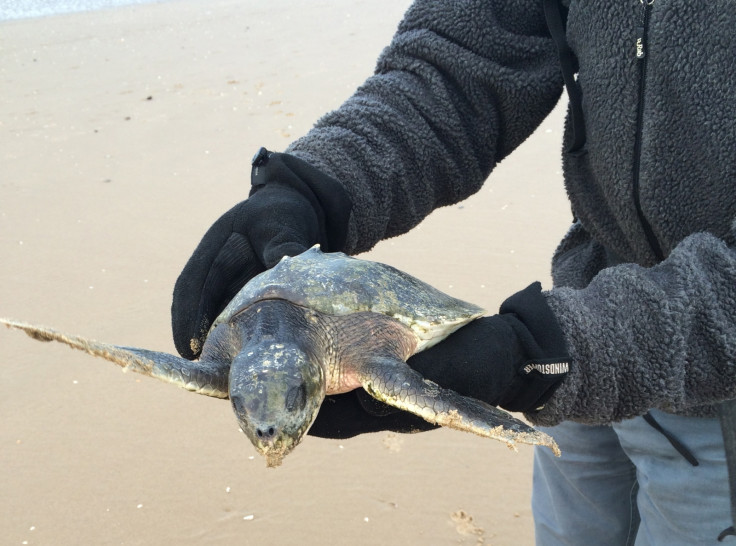Third occurrence of world's rarest sea turtle washing up on UK beach in two months

A critically endangered species of sea turtle has been washed up onto UK beaches three times in the last two months.
The Kemp's Ridley sea turtle is the rarest sea turtle in the world, hailing from the warm waters in the Gulf of Mexico.
While they are often found in Florida, Louisiana and New Jersey in the US, Kemp's Ridley turtles are also known to travel over the Atlantic Ocean, although females will always return to lay eggs on one single beach – the Rancho Nuevo in Tamaulipas, Mexico.
"It is rare for non-native turtles to be washed ashore but there have been strong westerly winds over December. Stray juveniles can sometimes be carried by strong currents from warmer seas and this might explain why they are so far away from home," explained Joan Edwards, The Wildlife Trusts' Head of Living Seas.
In December, two Kemp's Ridley turtles were found within a day of each other – the first at Formby beach, Southport and the second on Walney Island in Cumbria.
Both of the turtles are alive, with the one found on Formby beach being cared for by the RSPCA, while the turtle found on Walney Island is now at the Lake District Coast Aquarium in Maryport, Cumbria.
However, today the Telegraph reports that a third Kemp's Ridley sea turtle has been spotted – this time washed up on Green Cliff beach in North Devon, but sadly this turtle was found dead.
The finder, Ben Read, found the turtle while out on a seaside walk and is currently keeping it in a freezer until a marine biologist can collect it for further analysis.
In the case of the Formby beach turtle, it was found by Rob Archer while he was walking along the Sefton Coast. Archer said that he found the turtle quite high up on the beach and decided to put it back into the water.
Later on, someone else found the turtle and it was handed over to the RSPCA.
According to the Wildlife Trust, putting a stranded turtle back into the sea is a bad idea, and people who find a stranded live or dead turtle should report their find immediately to the Cetacean Strandings Investigation Programme's website or call 0800 6520333.
"The sea temperatures on the east coast of the USA recently dropped causing large numbers of Kemp's Ridleys to become 'cold-stunned'. This condition leaves the turtles in a lethargic condition unable to feed or swim against strong currents. The two turtles currently in rehab are very likely as a result of this event," said Rod Penrose, Strandings Co-ordinator for the UK Cetacean Strandings Investigation Programme in Wales.
"There's a very good chance there are more around so it would be great if people could check their local beaches. If these animals survive, then arrangements will be made to fly them back to America at a later date."
© Copyright IBTimes 2025. All rights reserved.






















